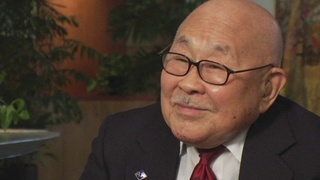Interviews
Accepted by Japanese society as I learned more Japanese (Japanese)
(Japanese) In my early days in Japan, when I couldn’t understand Japanese, I think that people treated me differently, in a discriminatory way. But I’m not really sure if it was because I’m a foreigner or Brazilian. I had a hard time getting along with people around me, as some of them said to me, “Go back to Brazil” or I had things stolen at school. But at the same time, I think that I was partly responsible because I didn’t know about Japan well enough, and that things would have been different if I’d had a better understanding.
So, like I said, I’m not sure if it was discriminatory to begin with, because as I learned more Japanese, I was able to make more friends and even people who disliked me, they also got friendly, so it might have been because we couldn’t communicated enough. I don’t think I’ve experienced discrimination after I learned Japanese.
Date: October 18, 2016
Location: Gunma, Japan
Interviewer: Shigeru Kojima
Contributed by: Watase Media Arts Center, Japanese American National Museum
Explore More Videos

Influence of Mexican culture after returning from camp
(b. 1943) Japanese American transgender attorney

My father forced me to speak Japanese at home
Professor of Law, University of Sao Paulo, Lawyer, Translator (b. 1948)

Dancing in Japan as an American, in the US as Japanese
(1918-2023) Nisei Japanese kabuki dancer

The Japanese government's mistaken assumptions about Japanese Americans
Professor of Law, University of Sao Paulo, Lawyer, Translator (b. 1948)

Discrimination in San Francisco
(1914–2015) Nisei YMCA and Japanese American community leader

Collection of artifacts depicting racial stereotypes influences art
(b. 1939) Japanese American painter, printmaker & professor

Encountering racial discrimination at a public swimming pool
(b. 1923) Nisei from Washington. Resisted draft during WWII.

His testimony has more credibility because of his race
(1922 - 2005) Former U.S. Army counterintelligence officer

Gender discrimination in education field
(1925 - 2018) Nisei educator from Hawai‘i

First impression of New York City during war time
(1915 - 2011) Nisei florist who resettled in New York City after WW II. Active in Japanese American civil rights movement

Not bringing shame to family
(1926 - 2012) Scholar and professor of anthropology. Leader in the establishment of ethnic studies as an academic discipline

Past ties to present situation in Middle East
(1926 - 2012) Scholar and professor of anthropology. Leader in the establishment of ethnic studies as an academic discipline

Didn't have rights that whites had
(1922–2014) Political and civil rights activist.

Californians didn't know about evacuation
(1922–2014) Political and civil rights activist.

Her experience as a Japanese-American schoolchild in Oceanside, California, after the bombing of Pearl Harbor
(1924-2018) Artist and playwright.
